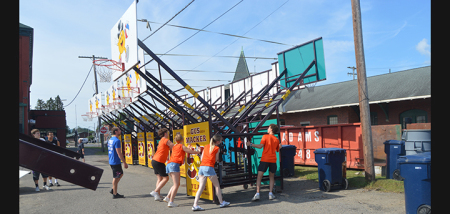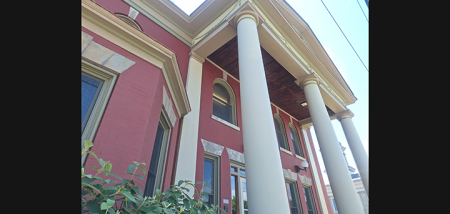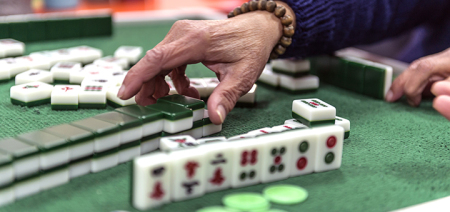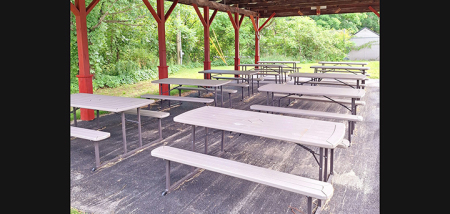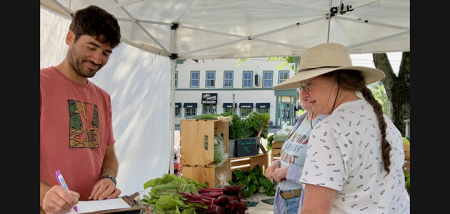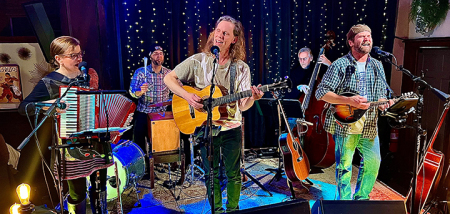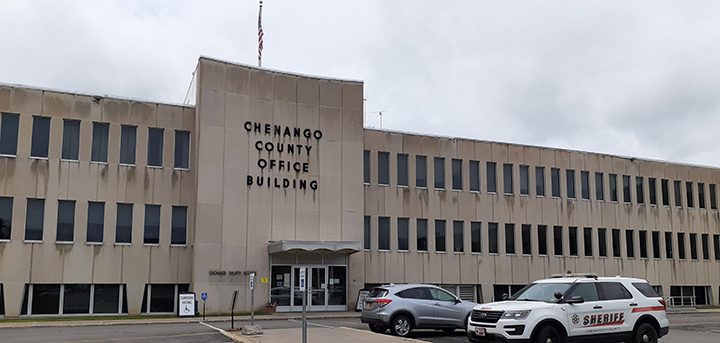Home Of The Brave: How Strong Are Chenango's Ties?
Published:
July 4th, 2007
By:
Tyler Murphy

When fifty-six men signed their names to a document, scarcely supported by less than one third of the American population, declaring their right to succession on the basis of “life, liberty and the pursuit of happiness,” they had resigned themselves to be cast out as traitors and hanged for sedition if caught by their government, the most powerful military force on the face of the earth, the British Crown.
This enduring boldness was better kept by the writings and actions of these patriots inspiring the unspoken creation of a moral precedent the world over has attempted to aspire to since. These men began a revolution of ideas in the halls of a remote city called Philadelphia, that would grow to engulf the entire world. It would be the first time since Julius Caesar toppled the Roman senate nearly 2,000 years earlier that a democratic republic would appear on the landscape of human endeavor.
Such renowned influences only their own words can tell: “We hold these truths to be self-evident, that all men are created equal, that they are endowed by their creator with certain unalienable rights,” Declaration of Independence; “I only regret that I have but one life to give for my country,” Nathan Hale’s famous last words just prior to being hanged for sedition by the British, and Thomas Paine wrote “These are the times that try men’s souls.”
Today America has converted that old democratic martyrdom into a family event designed at relishing in our freedoms rather than fighting for them. Americans from all walks of life and every corner of the globe will celebrate the sacrifices of great men by sitting down with their wives, children and friends. There’ll be barbecues, fireworks and laughter. For what activity, other than peace and family, could pay better homage to the defenders of freedom?
Although no battles took place in Chenango County involving the Continental Army or the British Red Coats, the region is swathed with an unusually high number of graves from the survivors of the war. During the time of the Revolution, Chenango and much more belonged to the Oneida and Tuscarora Indian tribes. To the west were the remnants of the Iroquois nations such as the Onondaga tribe. The eastern tribes in Chenango, the Oneida and Tuscarora, tried to remain neutral but were drawn into the conflict on behalf of the Americans and defended the frontier against the western Iroquois tribes aligned with the British.
A colonial army did march south of the region near what is now Afton and Bainbridge during the war, but did not fight a battle. After the war, the tribes west of Chenango had their land seized and awarded to the soldiers returning home from the war. The state purchased the eastern lands from their allies the Oneida and Tuscaroras and forced them out of the area. The revolutionary soldiers enjoyed the valleys found in Chenango so much they sold their awarded land, mostly in Cortland County, and purchased the now state owned land in Chenango. For this reason a large number of revolutionary era graves can be found in cemeteries across the county.
According to the historical records written in a book called “Revolutionary War Veterans of Chenango County, New York,” by Norwich resident Nelson B. Tiffany, one of the most famous heroes of the American Rebellion in the region was Colonel William S. Smith of the Continental Army.
Smith married Abigail Adams, the daughter of the United States’ second President, John Adams. Buried at West Hill Cemetery in Sherburne, his grave monument reads, “Here lies the Mortal remains of Col. Wm. S. Smith who died at Lebanon June 10, 1816, Aged 59 years. In the war of Independence He fought in Twenty two Battles. Served as Aide to Genl. Washington Who always Held him in Affectionate Esteem. In Memory of Abigail Adams The Wife of Col. Wm. S. Smith And Only Daughter of John Adams The Second president Of the United States.”
For his efforts in the war, Smith was able to purchase 150,000 acres in the Chenango and Madison county area; later this land was divided into four separate townships. Two in Chenango are now the Towns of Smyrna and Sherburne.
His wife unfortunately died in Albany from the typhus while he was building them a home in the region and due to the lack of technology to transport the remains, she was buried near the capital. Her children were later buried with her. Three years later, Col. Smith passed on and was buried by friendly Indians and others in a sunny spot on West Hill. Although there has been talk of uniting the couple and their children, with the fallen hero in Sherburne, to this day they lie apart.
A countless number of graves scattered throughout the county are covered with the fading etchings that bare the phrases, “Solider of the Rebellion,” Soldier of the Revolution” and “Fought in the War for Independence.” However the ultimate monument to their achievement and sacrifice is the preservation of their ideals by the most powerful nation ever to exist, the United States of America.
This article was possible by the input and help received from the County Historical Society, Sherburne Town Supervisor Harry W. Conley and West Hill Cemetery Superintendent Marc Tucker.
Author: Tyler Murphy - More From This Author
Comments
